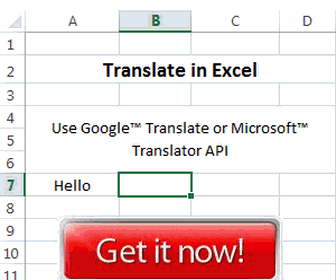The explosive growth of online shopping has created immense opportunities for entrepreneurs and established tech businesses alike. However, to thrive in the competitive eCommerce market, you need effective eCommerce marketing strategies.
eCommerce marketing encompasses a broad range of tactics aimed at driving traffic, generating leads, and ultimately, increasing eCommerce sales for your online business. With the right approach, you can engage your target audience, build brand loyalty, and boost your bottom line.
Whether you’re running a small boutique store, a blogging business, a mobile app development business, or a large multinational corporation, having a robust eCommerce marketing strategy is essential to drive sales and build a strong online presence.
In this blog, we’ll explore some effective eCommerce marketing strategies that can help your business thrive in the digital marketplace.
What is eCommerce Marketing?
eCommerce marketing refers to the strategies and techniques used by businesses to promote and sell their products or services online. It involves leveraging digital channels and technologies to reach and engage potential customers, drive website traffic, and ultimately, convert visitors into paying customers.
eCommerce marketing encompasses a wide range of activities aimed at creating brand awareness, attracting a target audience, and maximizing online sales.
Types of eCommerce Marketing
eCommerce marketing encompasses various strategies and tactics to promote products or services online and drive sales.
Here are some of the most common types of eCommerce marketing:
- Search Engine Optimization (SEO): SEO is the process of optimizing your website to rank higher in search engine results pages (SERPs). It involves on-page optimization, keyword research, link building, and content creation to increase organic traffic.
- Content Marketing: Creating valuable and relevant content to attract and engage your target audience. This can include blog posts, articles, product descriptions, videos, infographics, and more.
- Social Media Marketing: Leveraging social media platforms to build a brand presence, engage with your audience, and promote products. Social media marketing can be both organic (non-paid) and paid, using social media advertising.
- Email Marketing: eCommerce email marketing strategies include building and maintaining an email list to send promotional messages, newsletters, product updates, and special offers to engage and retain customers.
- Pay-Per-Click (PPC) Advertising: Paid advertising campaigns where you pay a fee each time a user clicks on your ad. Platforms like Google Ads, Facebook Ads, and Bing Ads are commonly used for PPC advertising.
- Influencer Marketing: Collaborating with social media influencers or content creators to promote products or services to their engaged audience, often leveraging their credibility and reach.
- Affiliate Marketing: Partnering with affiliates who promote your products in exchange for a commission on sales generated through their referral links.
- Social Proof and User-Generated Content: Showcasing customer reviews, ratings, and user-generated content to build trust and credibility with potential customers.
- Retargeting (Remarketing): Displaying ads to users who have previously visited your website but didn’t make a purchase, with the aim of re-engaging them and encouraging conversions.
- Landing Page Optimization: Optimizing the design and content of landing pages to improve the conversion rate and enhance the user experience for visitors arriving from various marketing channels.
- eCommerce Analytics: Monitoring and analyzing key performance metrics to track the effectiveness of your marketing efforts, refine strategies, and make data-driven decisions.
- Mobile Marketing: Adapting marketing strategies to target mobile users, as mobile shopping and mobile internet usage continue to grow.
- Video Marketing: Using video content, such as product demos, tutorials, or brand storytelling, to engage and inform potential customers.
- SMS Marketing: Sending text messages to customers to provide updates, promotions, and personalized offers.
- Content Syndication: Sharing your content on third-party platforms, such as guest posting on industry blogs or sharing your content on content distribution networks.
- Community Building: Creating and nurturing online communities around your brand or products, such as forums, social media groups, or discussion boards.
- Paid Social Media Advertising: Running paid ad campaigns on social media platforms like Facebook, Instagram, Twitter, and LinkedIn to target specific audience segments.
- Marketplace Marketing: Selling products on online marketplaces like Amazon, eBay, or Etsy, and using strategies to improve visibility and sales within these platforms.
15 eCommerce Marketing Strategies for Tech Businesses
eCommerce marketing strategies are essential for online businesses to attract customers, increase sales, and establish a strong online presence.
Here are some effective ecommerce marketing strategies to consider:
- Influencer Tech Reviews: Collaborate with tech influencers to create authentic, in-depth reviews of your products. Their unbiased opinions will resonate with tech-savvy consumers, building trust and credibility.
- AR-Powered Try-Before-You-Buy: Implement augmented reality (AR) technology to allow customers to virtually test your tech digital products before purchasing. This interactive experience can reduce the uncertainty associated with buying tech online.
- Tech-Infused Content Marketing: Create content that showcases how your tech products can solve real-life problems. For example, write blog posts or produce videos on “5 Ways Our Smart Home Devices Simplifies Your Life.”
- User-Generated Content Contests: Launch contests encouraging customers to share their creative use of your tech products on social media. Reward the best entries with prizes, fostering a community around your brand.
- AI-Powered Chatbots: Implement AI chatbots on your website to provide instant tech support and answer product-related questions 24/7. Ensure they can handle technical queries effectively.
- Tech Webinars and Workshops: Host online webinars and workshops on emerging tech trends, educating your audience while subtly showcasing your expertise and products.
- Limited-Time Tech Drops: Create buzz by offering exclusive, limited-time product releases or tech bundles. Use scarcity and urgency to drive sales among early tech adopters.
- Personalized Recommendations: Leverage machine learning algorithms to offer personalized product recommendations based on a customer’s tech preferences and browsing history.
- Green-Tech Messaging: Emphasize the eco-friendly aspects of your tech products. Highlight their energy efficiency, reduced carbon footprint, or how they contribute to a sustainable lifestyle.
- Tech-Driven Loyalty Programs: Develop a loyalty program where customers can earn rewards or discounts by referring friends, leaving reviews, or attending tech-related events.
- Email Automation Sequences: Use email marketing to nurture leads and customers with automated sequences. Provide tech tips, how-to guides, and exclusive offers to keep them engaged.
- VR Showroom Experience: Implement virtual reality (VR) to create immersive online showrooms where customers can explore your tech products in a 3D space. This helps bridge the gap between online and in-store shopping.
- Cross-Promotion with Complementary Tech Brands: Collaborate with other tech companies whose products complement yours. Cross-promote each other’s offerings to tap into each other’s customer base.
- Hackathons and Developer Challenges: Organize tech-themed hackathons or coding challenges. Engage with developers and tech enthusiasts who might not be your primary customers but can positively influence your brand.
- Tech Explainer Videos: Produce short, engaging videos that explain the underlying technology of your products in simple terms. This helps demystify complex tech and makes it more accessible.
- Tech-Focused Social Ads: Craft visually appealing and informative ads tailored for specific tech platforms like Reddit, Stack Overflow, or GitHub, where tech enthusiasts gather.
- Secure Shopping Assurance: Assure customers of the security of their personal data and financial transactions when shopping on your site. Highlight your encryption measures and cybersecurity practices.
- Tech Forums and Communities: Actively participate in and contribute to tech-related forums, subreddits, and online communities. Offer valuable insights and subtly promote your products when relevant.
- AI-Powered Price Matching: Implement AI algorithms that automatically match or beat competitors’ prices on your tech products, showcasing your commitment to offering the best deals.
- Tech-Driven CSR Initiatives: Align your brand with tech-related corporate social responsibility efforts, like providing tech education to underserved communities or donating tech resources to schools.
There You Have It!
Remember, successful eCommerce marketing for tech businesses involves staying on top of emerging tech trends, being agile, and adapting your strategies to meet the ever-evolving needs and preferences of your tech-savvy audience.
The most effective approach for your eCommerce business will depend on your specific goals, target audience, and the nature of your products or services. Many successful and different types of eCommerce businesses use a combination of these marketing types to maximize their online presence and sales.
These ecommerce marketing strategies are not one-size-fits-all, and their effectiveness may vary depending on your specific business, niche, and target audience. It’s essential to adapt and refine your strategies based on performance data and evolving industry trends to achieve long-term success in the competitive world of eCommerce.



















